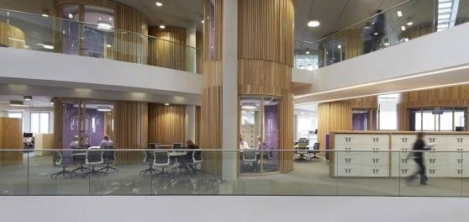January 1, 2015
Report finds that tech increases productivity, but also the hours we work
 A report published at the end of December by the non-profit Pew Research Center claims that while nearly half of US workers believe that new technology helps them to be more productive, it also means they are working significantly longer hours. The study of 535 people claims that 46 per cent of US workers believe that the internet, email, and mobile phones have upped their productivity, while only 7 per cent think they have led to a fall in their productivity. Over a third (39 percent) of those surveyed say that they now have more flexible working hours, and a similar number (35 percent) believe that new technology has increased the number of hours they work. For office based workers the changes are even more pronounced with nearly half (47 percent) seeing an increase in their working hours.
A report published at the end of December by the non-profit Pew Research Center claims that while nearly half of US workers believe that new technology helps them to be more productive, it also means they are working significantly longer hours. The study of 535 people claims that 46 per cent of US workers believe that the internet, email, and mobile phones have upped their productivity, while only 7 per cent think they have led to a fall in their productivity. Over a third (39 percent) of those surveyed say that they now have more flexible working hours, and a similar number (35 percent) believe that new technology has increased the number of hours they work. For office based workers the changes are even more pronounced with nearly half (47 percent) seeing an increase in their working hours.
























December 3, 2014
It’s no surprise a third of homeworkers choose to work in their pyjamas
by Sara Bean • Comment, Facilities management, Flexible working, News, Technology, Workplace